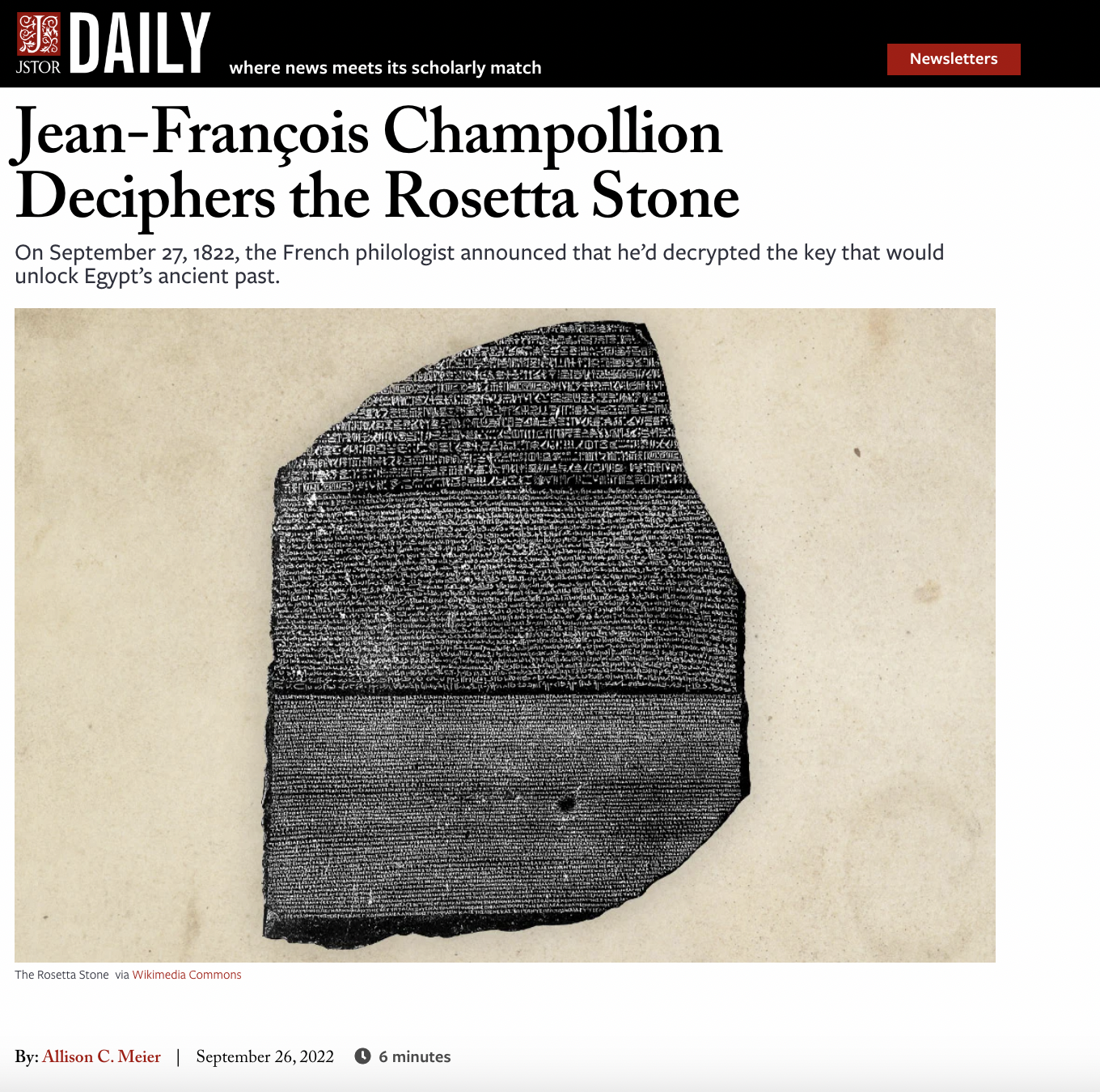
I contributed two stories timed with discoveries to JSTOR Daily, one on the discovery of King Tut’s tomb and another on the deciphering of the Rosetta Stone:
With all this attention paid to the Rosetta Stone, its meaning beyond an object used by European scholars to unlock an ancient script is frequently overlooked. The moment in which it was created to spread the reputation of a ruler—literally as the stelae were erected around the kingdom—and the use of language to assert that ruler’s power is also a part of its history. As museums are now reckoning with the looted provenance of many objects in their collection, the stone is also an object inextricably linked with the conquests of colonial powers in the eighteenth century. The Rosetta Stone is a key to the past, but it also carries forward these colonial legacies and reckonings toward the future.